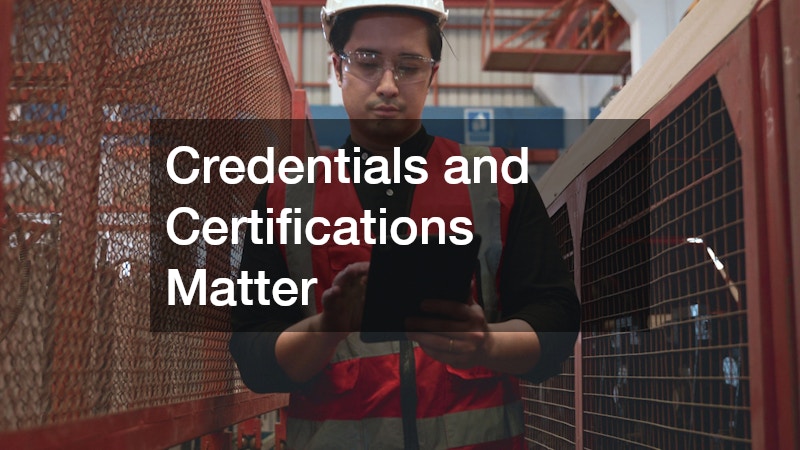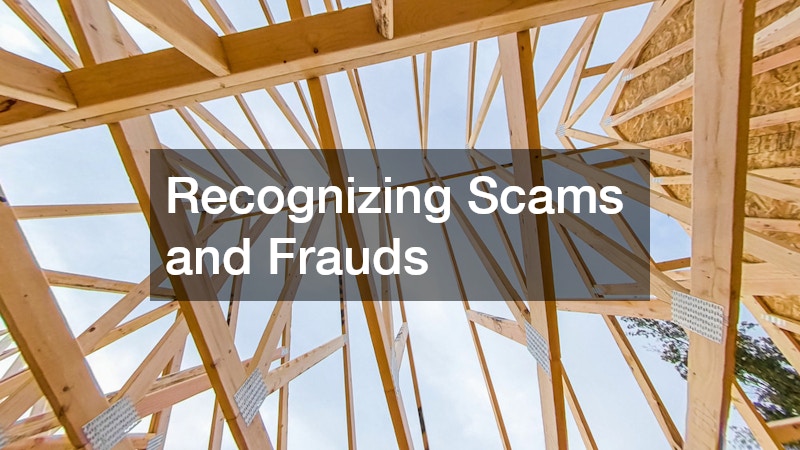How to Choose the Right Roofing Contractor and Identify Roofers to Avoid
Introduction: The Importance of Selecting the Right Roofer
Choosing the right roofing contractor is one of the most important decisions a homeowner can make. Your roof protects your home from the elements, enhances energy efficiency, and contributes significantly to your property’s value. Residential roofs and commercial roofing projects alike require precision, experience, and quality materials. Working with a trusted local roofer or residential roofing company ensures proper installation, maintenance, and repairs that last for years. With the abundance of roofing companies and contractors offering services, knowing how to evaluate their credibility is critical. Recognizing warning signs of roofers to avoid, understanding industry standards, and communicating effectively with your contractor can prevent costly mistakes and ensure that your roof provides reliable protection. Taking the time to research local roofing options, comparing past projects, and asking for professional references can make a significant difference in the final outcome. Partnering with an experienced local roofing contractor also helps homeowners make informed decisions about the type of roofing materials and installation methods that best suit their needs. Ultimately, selecting the right roofer protects your investment, reduces long-term repair costs, and ensures your home remains safe and efficient.

Credentials and Certifications Matter
When evaluating potential roofing contractors, credentials and certifications serve as key indicators of professionalism and expertise. Licensed local roofers and certified roofing companies demonstrate compliance with industry standards, building codes, and safety requirements. Certifications from professional organizations reflect a commitment to ongoing training and best practices, which is especially important for both residential roofs and local commercial roof installation projects. Contractors who maintain up-to-date credentials are typically more knowledgeable about current materials, techniques, and environmental considerations. In addition, verified certifications provide a layer of assurance that the roofing contractor can be held accountable for their work. When comparing contractors, it’s essential to confirm their licenses, insurance, and certifications to ensure you are choosing a roofer who is both qualified and legally authorized to operate in your area. Homeowners should also verify that the certifications match the specific type of roofing project, whether it’s roof repairs, residential roofing, or commercial roofing. Credentials not only indicate technical knowledge but also show a contractor’s commitment to professionalism and ongoing skill development. Ensuring proper certification helps mitigate risks and protects the home from potential mistakes or substandard workmanship.
Experience and Track Record
Experience is one of the most reliable indicators of a roofer’s skill and dependability. Local roofers with years of residential roofing experience have likely encountered a wide variety of roofing challenges and weather conditions, giving them the insight needed to handle complex projects effectively. A proven track record includes successfully completed installations, renovations, and roof repairs, often accompanied by client testimonials or case studies. Roofing contractors with consistent, long-term experience tend to make fewer mistakes and provide solutions tailored to your specific home or commercial property. In addition, experienced roofing companies understand the nuances of different roofing materials, from asphalt shingles and metal panels to synthetic membranes, ensuring proper installation for durability and longevity. Assessing a contractor’s history with similar projects provides confidence that they can meet your expectations. Experienced local commercial roofers often bring specialized skills for handling larger structures or unique architectural designs. Checking references and past project portfolios helps homeowners avoid roofers to avoid and choose a contractor with proven expertise.
Customer Reviews and Testimonials
Customer feedback is a powerful tool for evaluating potential roofing contractors. Positive reviews and testimonials provide insight into a roofer’s reliability, quality of work, and professionalism. Local roofers who consistently earn high ratings are more likely to prioritize customer satisfaction and deliver dependable results. Conversely, repeated complaints or negative feedback may indicate problems with workmanship, timeliness, or communication. Homeowners should look for detailed reviews describing both the project process and the final outcome. Engaging with contractors who have transparent, verifiable references ensures that your roof repairs or installations are completed according to your expectations and industry standards. Online reviews, social media feedback, and word-of-mouth recommendations are excellent sources for evaluating roofers. Reaching out to previous clients directly can provide firsthand insights into a contractor’s reliability and work ethic. Taking the time to analyze reviews helps homeowners avoid roofers to avoid and select a roofing company that consistently delivers excellence.

Red Flags: How to Identify Roofers to Avoid
While there are many reputable roofers, homeowners must remain vigilant for signs of untrustworthy contractors. High-pressure sales tactics are one of the most common warning signs; contractors who demand immediate contracts or aggressive commitments often prioritize profit over quality. Unusually low estimates may seem appealing, but they frequently indicate substandard materials, inexperienced crews, or hidden fees. Another red flag is a lack of documentation, including missing licenses, insurance proof, or written contracts. Roofers who cannot provide verifiable credentials or refuse to answer questions about permits and warranties should be avoided. Recognizing these warning signs early prevents costly mistakes, poor workmanship, and future roof repairs, protecting both your home and your investment. Other warning signs include an unclear communication style, no physical office location, or refusal to provide a detailed written estimate. Homeowners should be wary of contractors who push unnecessary upgrades or shortcuts that compromise the roof’s integrity. Identifying these issues early ensures that your roofing project proceeds safely with a reputable professional.
The Importance of Licensing
Licensing is a non-negotiable factor when selecting a roofing contractor. A licensed local roofer complies with state and local regulations, ensuring that your roof installation or repair meets legal and safety standards. Licensing provides quality assurance, signaling that the contractor has undergone training, passed examinations, and adheres to industry best practices. Liability coverage and workers’ compensation insurance protect homeowners in case of accidents, damage, or injuries during residential roofing projects. Choosing a licensed roofing company or contractor reduces the risk of substandard work and legal complications. Local commercial roofers, in particular, must follow stringent codes and permit requirements, making licensing a critical component for all types of roofing projects. A licensed contractor also offers peace of mind that inspections and permits will be handled properly. Homeowners should verify license numbers with local regulatory agencies to ensure legitimacy. Choosing licensed roofers significantly reduces the likelihood of falling victim to scams or roofers to avoid.
Questions to Ask Your Roofing Contractor
Asking the right questions can help homeowners make informed decisions. Inquire about the contractor’s experience with residential roofs, commercial projects, and local roofing conditions. Request references from previous clients and examples of similar projects. Clarify project timelines, labor practices, and costs to prevent misunderstandings. Discuss warranty coverage, including manufacturer and workmanship guarantees, to understand long-term protection. Understanding these factors helps homeowners differentiate between professional, transparent roofers and those likely to provide subpar service. A reputable contractor will answer all questions openly and provide guidance on materials, installation, and maintenance requirements. Additional questions might include whether subcontractors will be used and how unexpected issues are handled. Asking about material brands and lifespan helps gauge long-term value. Clear communication during this stage prevents potential conflicts and ensures expectations are aligned.
Comparing Quotes Between Roofers
Reviewing estimates from multiple roofing contractors ensures you understand the scope, materials, and labor involved. Homeowners should carefully analyze each quote, noting differences in materials, installation methods, and additional services. Hidden fees or vague descriptions can signal potential issues later in the project. Reliable local roofers provide detailed, transparent quotes that include a breakdown of costs for materials, labor, and permits. Comparing quotes goes beyond price, focusing on the value and quality of services. By evaluating both cost and quality, homeowners can select a contractor who delivers a durable, well-constructed roof. Comparing multiple proposals also highlights differences in service approaches and project timelines. Homeowners should ensure that all quotes cover identical work scopes to make an accurate comparison. Understanding the details of each estimate helps avoid unexpected costs and identifies roofers to avoid.

Recognizing Scams and Frauds
Fraudulent roofing practices can lead to significant financial loss and home damage. Spotting fake reviews, avoiding contractors who demand full payment upfront, and verifying business legitimacy are essential steps. Local roofers and residential roofing companies with a strong reputation typically avoid these questionable practices. Homeowners should confirm licensing, insurance, and references before proceeding. Scams often involve shortcuts, substandard materials, or unlicensed labor, resulting in costly roof repairs or replacements. By remaining vigilant, property owners can protect themselves while ensuring a high-quality roofing project. Additional caution should be taken when a contractor guarantees unusually fast project completion. Homeowners should also verify the company’s physical address and contact information. Awareness of common fraud tactics ensures safer selection of a trustworthy roofing contractor.
Signs of Poor Quality Roofing Work
Poor craftsmanship can compromise the integrity and lifespan of residential roofs. Common indicators include uneven shingles, sagging areas, water stains, and improperly installed flashing. Leaks or repeated roof repairs may also signify substandard installation. Local roofers with a strong track record focus on precision, attention to detail, and adherence to best practices. Recognizing the hallmarks of quality work versus poor workmanship helps homeowners avoid hiring roofers to avoid, preventing costly mistakes and ensuring long-term roof performance. Other signs of poor quality include inconsistent shingle alignment, improper ventilation, and excessive nail exposure. Homeowners should inspect previous projects or consult third-party roof inspectors if unsure. Detecting these issues early allows corrective action and preserves the roof’s value and function.
Written Roofing Contracts
A written contract formalizes expectations and protects both the homeowner and the contractor. It should include a detailed scope of work, timelines, materials, warranties, and payment schedules. Terms and conditions clarify responsibilities, procedures for changes, and resolution methods for potential disputes. Reputable local roofing contractors and residential roofing companies provide comprehensive contracts to minimize misunderstandings. Homeowners should ensure the contract covers all aspects of roof installation or repairs, safeguarding against surprises and securing accountability throughout the project. Including clauses for unexpected weather delays, warranty specifics, and cleanup responsibilities prevents disputes. A thorough contract also outlines how changes in materials or additional repairs will be managed. Written agreements are essential for maintaining a professional relationship and protecting both parties’ interests.
Understanding Warranties
Warranties provide peace of mind and protection for both materials and workmanship. Manufacturer warranties cover defects in roofing products, while contractor warranties guarantee proper installation. Understanding coverage, duration, and claim procedures ensures homeowners can address issues effectively if they arise. Local roofers who offer clear warranty information demonstrate confidence in their work and materials. Warranties are an essential consideration for all residential roofs and roof repairs, providing a long-term safety net for homeowners. Reviewing warranty terms carefully helps homeowners know what is included and excluded. Some warranties may cover labor costs for repairs, while others may only cover materials. Ensuring proper warranty coverage protects homeowners from unexpected expenses and identifies roofers to avoid who offer minimal protection.

Handling Conflicts With a Roofer
Even with reputable contractors, conflicts can occur. Effective communication is essential for resolving misunderstandings and clarifying expectations. Documenting issues with photos, notes, and correspondence provides a reference for discussions or potential mediation. If resolution cannot be reached, third-party arbitration or consulting local licensing boards may be necessary. Experienced roofing contractors often prevent conflicts through transparency, detailed contracts, and open dialogue. Maintaining a professional relationship ensures smoother project completion and protects the homeowner’s interests. Homeowners should approach conflicts calmly, providing evidence and remaining factual. Timely reporting of problems prevents escalation and keeps projects on track. Clear, written communication ensures that roof repairs or installations meet agreed-upon standards.
Conclusion: Ensuring a Successful Roofing Project
Selecting the right roofing contractor is vital for a durable, high-performing roof. By carefully evaluating credentials, experience, references, and past work, homeowners can distinguish reliable local roofers from those to avoid. Transparent communication, thorough inspections, and clear contracts help protect your investment and prevent costly mistakes. Quality residential roofs and commercial roofing projects require expertise, proper materials, and ongoing maintenance. Partnering with reputable roofing companies and skilled local roofers ensures long-term performance, energy efficiency, and peace of mind. Homeowners who recognize red flags, ask informed questions, and actively participate in maintenance will enjoy a roof that provides safety, comfort, and value for decades. Regular engagement with your roofing contractor and understanding the responsibilities of both parties ensures projects stay on schedule. By staying proactive and informed, homeowners maximize the longevity and performance of their roofs. Ultimately, selecting a trustworthy roofer protects your property, your budget, and your peace of mind.



